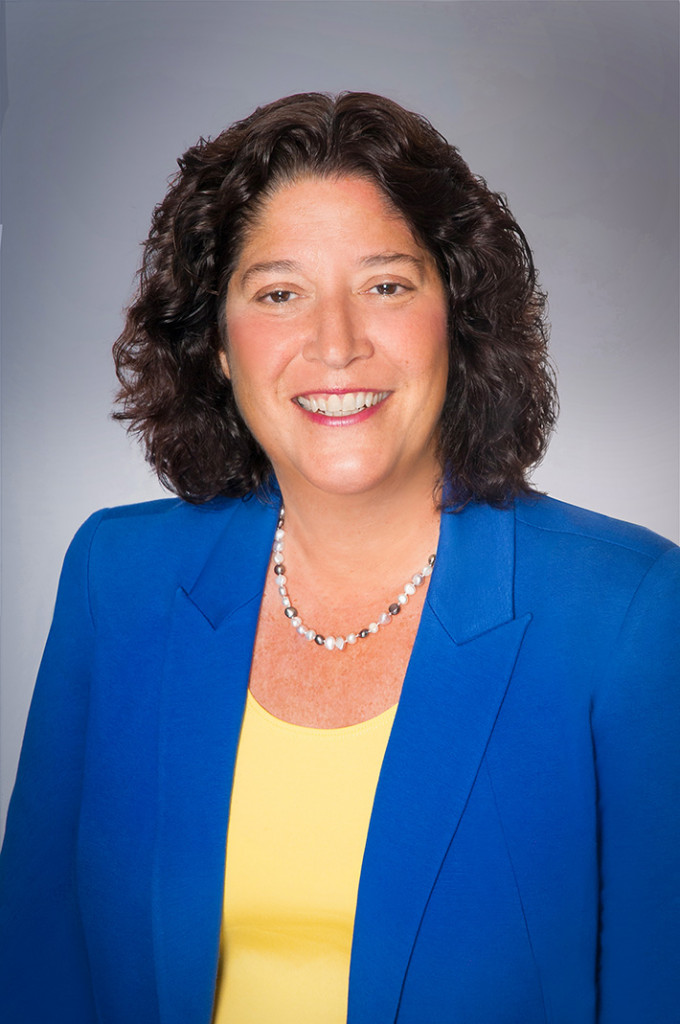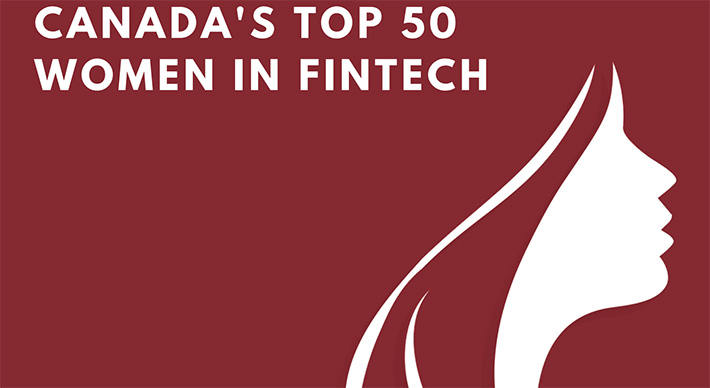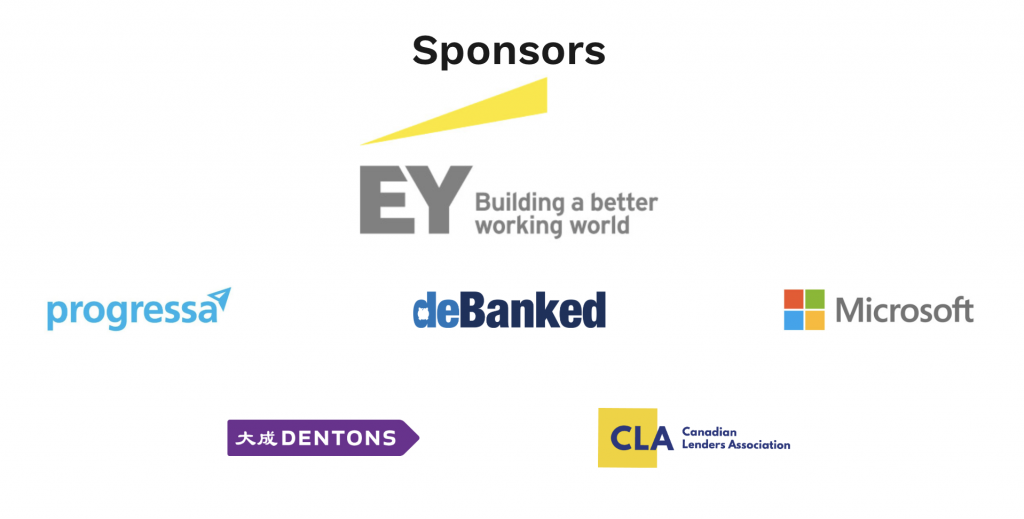Fintech
Chinese Funder MYBank Using Advanced Tech to Provide Capital
August 1, 2019 MYBank, the largest non-bank funder in China, is using new technological systems to approve loan applicants. The company, which is backed by Alibaba founder, second richest person in China, and former English teacher Jack Ma, is now in its fourth year of operations and has thus far provided 2 trillion yuan ($290 billion) in funding to 16 million customers.
MYBank, the largest non-bank funder in China, is using new technological systems to approve loan applicants. The company, which is backed by Alibaba founder, second richest person in China, and former English teacher Jack Ma, is now in its fourth year of operations and has thus far provided 2 trillion yuan ($290 billion) in funding to 16 million customers.
Having partnered with Ant Financial Services, a payment processing company which Ma is also involved in, MYBank has received access to a host of data. In order to apply for a loan, SMB owners give access to their real-time payment records, and from the analysis of these, as well as the non-bank’s own risk-management appraisal system which runs through over 3,000 variables, a judgment is made as to whether or not to fund the applicant.
Ant also provides MYBank with other tech, such as facial recognition software to detect fraud, and aids them with their implementation of cloud-computing and big data. But as well as these methods is another system unique to China: social credit. Currently in its pilot stages, this national reputation system is set to rival traditional credit score systems. It works by increasing or decreasing a citizen’s rating based off whether they perform a good or bad action. Yell at someone unnecessarily on your commute? Your social credit scores lowers. Help an old woman cross the street? It’ll go up.
When discussing how the system could be implemented, MYBank President Jin Xiaolong gave the example of a small business owner who, upon forgetting to return a borrowed umbrella, finds it harder to get a loan. As well as this, Bloomberg reported in 2018 that a very poor social credit score could lead citizens to being barred from staying at luxury hotels, buying high-end real estate, and enrolling their children in elite schools. The flip side of this is that those with impeccable ratings will receive discounts when commuting, relaxed scrutiny when seeking financial aid, and priority when applying to schools.
Made possible by data-tracking tech, social credit scores appear to be almost revolutionary for the alternative finance industry. Partnered with the other technological tools available to MYBank, the company could experience previously unseen heights of successful loans. Or rather it does already, with default rates at approximately 1%.
Accessible via a few taps on a smartphone, MYBank’s application process takes 3 minutes and due to automation, customers are often instantly approved with funds being made available straight away. One customer described this shift in supply as “unimaginable” and praised how easy it now was to find capital as soon as he needed it.
MYbank also revealed Tuesday that it intended to raise $871 million at a valuation of approximately $3.5 billion.
Maria Vullo Joins Emigrant Bank
July 31, 2019 Maria Vullo, who served as the Superintendent of New York’s Department of Financial Services (NYDFS) from 2016 to February 2019, has been elected to Emigrant Bank’s Board of Directors. As well as this, Vullo will be joining Emigrant’s holding company, New York Private Bank & Trust (NYPB&T).
Maria Vullo, who served as the Superintendent of New York’s Department of Financial Services (NYDFS) from 2016 to February 2019, has been elected to Emigrant Bank’s Board of Directors. As well as this, Vullo will be joining Emigrant’s holding company, New York Private Bank & Trust (NYPB&T).
The move comes five months after the end of Vullo’s tenure at NYDFS, a role which she was nominated for by Governor Andrew Cuomo. In the period proceeding this, Vullo took up the role of Regulator in Residence at Fintech Innovation Lab’s Partnership Fund for New York City. Here she offered mentorship to enterprise technology companies.
Having been a partner at the international law firm Paul, Weiss, Rifkind, Wharton & Garrison LLP prior to her time with NYDFS, Vullo is versed in civil, regulatory, and criminal issues, as well as securities, banking, insurance, real estate and other financial subjects.
Her tenure as NYDFS Superintendent was noted for its regulations on cybersecurity, transaction monitoring and life insurance. However it was not without hiccups and conflict, as one hearing on online lending saw her display both a distaste for alternative finance and a seeming misunderstanding of how interest rates within the industry are calculated. And upon the Office of the Comptroller of the Currency’s (OCC) proposal to establish a fintech charter that would grant bank-like powers to non-banks, Vullo opposed the rule in a letter, instead favoring state regulation over federal, claiming that such a charter could risk a financial crisis as well as endanger New York state’s sovereignty.
“Her depth of experience in financial services regulation and operations will greatly enhance our ability to provide innovative services to a range of customers in the markets we serve,” said Howard P. Milstein, Chairman, President, and CEO of NYPB&T, “She will be a great addition to our Board.”
Ken Rees, CEO of Elevate, Resigns
July 30, 2019 Ken Rees, the CEO of consumer lending company Elevate, resigned on Monday. The announcement coincided with the release of the company’s Q2 financials in which Rees described the business as performing “extremely well.”
Ken Rees, the CEO of consumer lending company Elevate, resigned on Monday. The announcement coincided with the release of the company’s Q2 financials in which Rees described the business as performing “extremely well.”
Thus far, in 2019, we have already delivered over $19 million in net income or $0.43 per fully diluted share. We are reaffirming our full year guidance for $25 million to $30 million in net income. This will be more than double the net income we delivered in 2018. Elevate’s bottomline performance was driven by excellent credit quality and very low rates of fraud across all of our products. Additionally, our customer acquisition costs have remained better than target levels. In short, the business is performing extremely well.
And this is why I believe now is a good time for me to step down as CEO. I am very proud of our financial accomplishments since our launch in 2014, but I am even proud of the leadership team here at Elevate. They are all seasoned and dedicated professionals that have been instrumental in the rapid growth of the company and in generating solid profitability over the past two years.
Rees also stepped down as chairman of the board of directors but will a remain a director of the company.
Chief Operating Officer Jason Harvison has been named interim CEO. Harvison joined the quarterly earnings call and said, “First, I couldn’t be more excited about Elevate’s future and believe the company is very well positioned to capitalize on the strategic initiatives put in place over the past year. Secondly, I firmly believe that Elevate is uniquely well-positioned in the market with strong credit quality, improving margins and a measured approach to growth. We are on track for steady profitability in 2019 and beyond.”
A permanent CEO is expected to replace Harvison in his capacity as interim CEO as soon as one is selected.
Elevate had a net income of $5.8M in Q2, up 87% year-over-year.
“Try Being Bored”: Amanda Parker’s Ascent To Top FinTech Recognition
July 19, 2019 “Fantastic and surprising” is how Amanda Parker, the Director of Innovation at FundThrough, described being selected as one of Canada’s Top 50 Women in FinTech last week. The list, produced by the Digital Finance Institute, aims to highlight those women whose contributions to and leadership in the FinTech industry have been influential.
“Fantastic and surprising” is how Amanda Parker, the Director of Innovation at FundThrough, described being selected as one of Canada’s Top 50 Women in FinTech last week. The list, produced by the Digital Finance Institute, aims to highlight those women whose contributions to and leadership in the FinTech industry have been influential.
Among those who Parker shares the honor with are executives from Mastercard, Google, RBC, and Scotiabank. Covering a wide range of the industry, it appears that Parker is in good company, and she herself says that it’s dizzying seeing her name among those of women whose work she has admired for years.
Parker earned her place on the list after having served as the Innovator and Entrepreneur in Residence at the Ryerson Digital Media Zone, an early-stage incubator for Canadian tech startups; founded and sold two venture-backed startups, CT Media and SimplyInsight; and worked in a number of positions at FinTech firms. The last of these feats saw her as the VP of Business Development and Partnership at Zoom.ai as well as an Advisor at Robin Concierge.
 If you think this sounds like a lot for one person to have done before even being a decade out of college, you’d be correct. Parker is a self-confessed overworker. Upon deciding to take a break from employment after her colleagues and investors told her to “try being bored for a while,” she managed to become newly employed after four weeks. A chance meeting with Deepak Ramachandran, FundThrough’s CTO, at a trade conference resulted in her landing her current role.
If you think this sounds like a lot for one person to have done before even being a decade out of college, you’d be correct. Parker is a self-confessed overworker. Upon deciding to take a break from employment after her colleagues and investors told her to “try being bored for a while,” she managed to become newly employed after four weeks. A chance meeting with Deepak Ramachandran, FundThrough’s CTO, at a trade conference resulted in her landing her current role.
Being an alternative finance company that deals exclusively in factoring, Parker’s role entails her foreseeing issues before they become problems. Saying that the job is like “developing a startup within a startup,” it seems like she’s in her element. With her experiences in the startup field coming to fruition at a company that’s been established for just under five years, Parker is enjoying herself, especially as she feels a connection to the service FundThrough provides, with the memory of needing to quickly receive payments being a holdover from her entrepreneur days.
Based in Toronto, FundThrough’s offices are a return to home for Parker, who had lived amongst the techies in San Francisco previously. Explaining the she felt the technology hub had been hampered by the housing market, she views Toronto as a perfect place for tech startups. “It’s been a known secret for a while that there’s tech talent in Toronto,” she noted before going on to talk about how new companies are just starting to take advantage of this by setting up shop in the city. A trend that is likely to also be bolstered by the relatively low rent and unsaturated labor force Toronto has.
“Now you don’t have to be in San Francisco to have a great job at a great company,” you might find one at home, just as Parker has.
Canadian Lenders Association to Host Open Banking Summit on July 10th
June 27, 2019The Canadian Lenders Association will be hosting its Open Banking Summit on July 10th at Dentons Toronto. It begins at 8am and ends at 11am. This is the third in their event series, and will tackle topics in Open Banking and Big Data in Canada. They will discuss how the industry can best work toward an open data economy in Canada. Join the amazing panel of industry leaders.
The total cost to attend is CA$79.08. You can register here.

Are The Bankers Taking Over Fintech?
June 27, 2019
For Rochelle Gorey, the chief executive and co-founder of SpringFour, a “social impact” fintech company, mingling with industry movers and shakers at this year’s LendIt Fintech Conference was just what the doctor ordered. “I went mainly for the networking opportunities,” Gorey told deBanked.
SpringFour, which is headquartered in Chicago, works with banks and financial institutions in the 50 states to get distressed borrowers back on track with their debt payments. It does this by digitally linking debtors with governmental and nonprofit agencies that promote “financial wellness.
The indebted parties—more than a million of whom had referrals that were arranged by Gorey’s tech-savvy company last year—constitute not only household consumers but also commercial borrowers. “Small businesses face the same issues of cash flow as consumers, and their business and personal income are often combined,” she says. “If their financial situation is precarious, it’s super-hard to get credit, a line of credit, or a business loan.”
 Although Gorey felt “overwhelmed” at first by the throng of 4,000 conference-goers at Moscone Center West in San Francisco—roughly the same number as attended last year, conference organizers assert— her trepidation was short-lived. It wasn’t too long before she was in circulation and having chance encounters and serendipitous interactions, she says, with “all the right people at the workshops and at the tables in the Expo Hall.”
Although Gorey felt “overwhelmed” at first by the throng of 4,000 conference-goers at Moscone Center West in San Francisco—roughly the same number as attended last year, conference organizers assert— her trepidation was short-lived. It wasn’t too long before she was in circulation and having chance encounters and serendipitous interactions, she says, with “all the right people at the workshops and at the tables in the Expo Hall.”
Armed, moreover, with a “networking app” on her mobile phone, Gorey was able to arrange targeted meetings, scoring roughly a dozen, 15-minute tete-a-tetes during the two-day breakout sessions. These included audiences with community bankers, financial technology companies, and “small-dollar” lenders. “And it went both ways,” she says. “I had people reaching out to me”—just about everyone, it seemed, appeared receptive to “finding ways to boost their customers’ financial health.”
Gorey’s success at networking was precisely the experience that the event’s planners had envisioned, says Peter Renton, chairman and co-founder of the LendIt Fintech Conference. Organizers took pains to make schmoozing one of the key features of this year’s gathering. Not only did LendIt provide attendees with a bespoke networking app, but planners scheduled extra time for meet-ups. “We had around 10,000 meetings set up by the app,” Renton says, “about double the number of last year.”
deBanked did not attend the LendIt USA conference on the West Coast this year. But the publication sought out more than a half-dozen attendees—including several financial technology executives, a leading venture capitalist, a regulatory law expert, and the conference’s top administrators—to gather their impressions. While informal and manifestly unscientific, their responses nonetheless yielded up several salient themes.
The popularity—and effectiveness—of networking was a key takeaway. Most seized the opportunity to rub elbows with influential industry players, learn about the hottest startups, compare notes, and catch up on the state of the industry. Most importantly, the event presented a golden opportunity to make the introductions and connections that could generate dealmaking.
“My goal this year was to strike more partnerships with lenders and fintech companies,” says Levi King, chief executive and co-founder at Utah-based Nav, an online, credit-data aggregator and financial matchmaker for small businesses. “We had great meetings with Fiserv, Amazon, Clover Network (a division of First Data), and MasterCard,” he reports, rattling off the names of prominent financial services companies and fintech platforms.
James Garvey, co-founder and chief executive at Self Lender, an Austin-based fintech that builds creditworthiness for “thin file” consumers who have little or no credit history, said his goal at the conference was both to serve on a panel and “meet as many people as I could.”
Self Lender is in its growth stage following a $10 million, series B round of financing in late 2018 from Altos Ventures and Silverton Partners. Garvey reports having meetings with Bank of America and venture capitalist FTV Capital “over coffee” as well as F-Prime Capital, another venture capitalist. “It’s just about building a relationship,” he said of making connections, “so that at some point, if I’m raising money or want to partner, I can make a deal.”
There was a concerted effort to recognize women, as evidenced by a packed “Women in Fintech” (WIF) luncheon that drew roughly 250 persons, 95% of whom were women. (“Many men are big supporters of women in fintech and we didn’t want to exclude them,” Renton says). The luncheon was preceded by a novel event—a 30-minute, ladies-only “speed-networking” session—which attracted 160 participants, reports Joy Schwartz, president of LendIt Fintech and manager of the women’s programs.
At the luncheon, SpringFour’s Gorey says, “it was empowering just to see lot of women who are senior leaders working in financial services, banks and fintechs.” The keynote speech by Valerie Kay, chief capital officer at Lending Club, was another highlight. “She (Kay) talked about taking risks and going to a fintech startup after 23 years at Morgan Stanley,” Gorey reports, adding: “It was inspiring.”
The women’s luncheon also marked the launch of LendIt’s Women In Fintech mentor program, and presentation of a “Fintech Woman of the Year” award. The recipient was Luvleen Sidhu, president, co-founder and chief strategy officer at BankMobile, a digital division of Customers Bank, based near Philadelphia, which employs 250 persons and boasts two million checking account customers.
I am honored to be the 2019 Fintech Women of the Year and thrilled that @BankMobile won Most Innovative Bank. It’s very exciting to be recognized by @LendIt Fintech with this prestigious award and I congratulate the finalists in all the categories. https://t.co/qjADuKEMrB pic.twitter.com/hFJVFw1fLS
— Luvleen Sidhu (@LuvleenSidhu) April 11, 2019
BankMobile, which also won LendIt’s “Most Innovative Bank” award, has an alliance with Upstart to do consumer lending and a partnership with telecommunications company T-Mobile. Known as T-Mobile Money, the latter service provides T-Mobile customers with access to checking accounts with no minimum balance, no monthly or overdraft fees, and access to 55,000 automated teller machines, also with no fees. (At its website, T-Mobile Money describes itself as a bank and uses the slogan: “Not another bank, a better one.”)
The impressive salute to women notwithstanding, their ranks remained fairly thin: just 733 attendees identified themselves as “female” on their registration forms, LendIt’s Schwartz says, a little more than 18% of total participants. Seventy-five of the 350 total speakers and panelists—or 21%—were female. (Schwartz also reports that another 157 registrants selected “prefer not to say” as their sexual orientation, while 22 checked the box describing themselves as “non-conforming.”)
In LendIt’s defense, deBanked, who caters to a similar audience, regularly reviews its readership demographics using several tools. They have consistently indicated that women make up 18% – 23% of the total, in line with what LendIt experienced at its most recent event.
By all accounts, many panels were informative, jampacked and attendees were engaged. King, who moderated a panel on regulatory changes in small business lending, which dealt with such topics as California’s commercial “truth-in-lending” law and controversial “confessions of judgment” laws, says: “They didn’t have to lock the door but the room was pretty full and people seemed to be paying attention. I didn’t see people studying their cellphones.”
The Expo Hall was teeming with budding fintech entrepreneurs, financial services companies and multiple vendors hawking their wares. But as numerous fintechs were angling to forge lucrative symbiotic relationships with banks, some participants—even those who were hailing the conference for its networking and deal-making opportunities—lamented the heavy presence of the establishment.
The banks’ ubiquitousness especially vexed Matthew Burton, a partner at QED Investors, an Arlington, (Va.)-based, venture capital firm and a veteran fintech entrepreneur. Before signing on with QED last year, Burton had been the co-founder of Orchard Platform, an online technology and analytics vendor for fintech and financial services companies which was purchased by fintech lender Kabbage.
Not only did bankers seem to playing a more prominent role at the LendIt conference, Burton notes, but “big four” accounting firm Deloitte had signed on as a major sponsor. “The energy level seemed a bit lower than in past years,” Burton told deBanked. “It’s not like people were depressed but it wasn’t bubbling with excitement. A couple of years ago we thought all these new fintechs would replace the banks,” he explains. “Now the discussion is over how to partner and collaborate with banks. It’s not as exciting as when everyone thought banks were dinosaurs.
“I couldn’t really tell if there were more bankers attending this year,” Burton adds, “but it sure felt like it.”
King, the Nav executive, told deBanked: “It was a little bit subdued. I don’t know if it was nervousness about the economy or politics, but the subject of risk came up more often in side conversations with venture-backed businesses and banks and alternative fintech lenders. One large bank we deal with,” he adds, “told me it’s spending most of its time working on risk.”
Cornelius Hurley, a Boston University law professor and executive director of the Online Lending Policy Institute who participated in a standing-room-only session on state and federal fintech regulation, declares: “I’ve been to three of their conferences, including one in New York, and I would say that this one did not have as much pizzazz. It may be that the industry is maturing.”
For his part—when asked whether there was a palpable absence of passion this year—LendIt’s Renton told deBanked: “I would say that it felt more businesslike. Fintech has had a lot of hype and we have had conferences that were ridiculously over-hyped in 2015 and 2016. And in 2017 (the mood) was much more somber. This one felt optimistic and businesslike.”
There were 750 bankers in attendance, almost one in five participants. “The number of bankers was not up significantly” over last year, Renton says, “but the seniority of the bankers was higher. We worked very hard to get senior bankers to attend this year.”
Renton was bullish on the closer ties developing between nonbank online lenders and banks. That was reflected as well in the several panels exploring ways to develop partnerships between the two sides. He noted that a session called “How Banks are Matching Fintechs on Speed of Funding and User Experience” drew a heavy crowd. “It brought more bankers than we’ve ever had before,” Renton says.
Moderated by Brock Blake, founder and chief executive at the fintech Lendio, the panel was composed of three bankers: Ben Oltman, the Philadelphia-area head of digital lending and partnerships at Citizens Bank; Gina Taylor Cotter, a senior vice-president at American Express (the highest-ranking woman at the company); and Thomas Ferro, a senior marketing manager at Bank of America. “The banks came to LendIt not just to learn but to decide whom they’re going to partner with,” Renton says. “Fintechs need banks and banks need fintechs. That is the narrative you hear on both sides.”
(Asked whether any banks sponsored this year’s conference, Renton replied: “They are not sponsoring yet in any number but we are working on that.”)
OnDeck, a top-tier fintech lender to small-businesses in the U.S., which has been making forays abroad to Australian and Canadian markets, is an enthusiastic champion of the fintech-bank union. So much so that it claimed LendIt’s “Most Promising Partnership” award for the cooperative relationship it struck with Pittsburgh-based PNC Bank, which uses OnDeck’s platform to make small business loans. (Among the partnerships that OnDeck-PNC beat out: Gorey’s SpringFour, which was named a finalist in the competition for its association with BMO Harris Bank.)
“We were the first fintech lender to strike a true platform relationship with a bank,” Jim Larkin, head of corporate communications at OnDeck says, noting that the PNC deal follows on the New York-based fintech’s similar, innovative arrangement with J.P. Morgan Chase. “Others may do referrals,” he explains. “What we do is actually provide the underlying platform to accelerate a bank’s online lending capabilities. We deliver the software and expertise to construct the right type of online lending engine.”
Meanwhile, there was avid interest about the stock performance of publicly traded fintechs—for example, Square and GreenSky—both of which had seen their share prices tumble and then recover.
Burton noted that, among venture-backed firms, the most excitement seemed to be coming from Latin America. “Everyone was very bullish on a Mexican company, Credijusto, an alternative small business lender that was written up the in the Wall Street Journal,” he says. “It’s not going public yet but it had a large debt-and-equity raise of $100 million from Goldman Sachs. And SoftBank Group announced a $5 billion Latin American tech fund.
“There was a lot of talk,” he adds, “about how money was flowing into Mexico and Brazil.”
Ocrolus Secures $24M in Series B
June 26, 2019 A fresh logo and new company jumpers aren’t the only recent additions to the Ocrolus offices this month, as the business has secured $24 million in Series B funding.
A fresh logo and new company jumpers aren’t the only recent additions to the Ocrolus offices this month, as the business has secured $24 million in Series B funding.
This development marks the $33 million point in investments for the automation platform. Led by Oak HC/FT, and backed by FinTech Collective,
Bullpen Capital, QED Investors, among other investors, the funds will be put to use expanding upon Ocrolus’s software and staffing.
With 40 employees currently working at Ocrolus, Co-founder and CEO Sam Bobley said that the company hoped to double this number over the next 12 months, aiming to have “a little over north of 80 this time next year.” As well as this, plans are underway to expand the capabilities of their product. Built to analyze financial documents, such as bank statements, pay stubs, and IDs, with 99% accuracy, Bobley explained that he plans for Ocrolus to be able to extract data from invoices and mortgage documents as well.
And while work on their software continues, the company is also looking to develop their customer base. With intentions to both deepen their core clientele, which is small business lenders, while also opening up their product to new markets, Ocrolus is set to put this $24 million towards building upon what they have established since opening their doors in 2014.
As New Regulations Sweep The Industry, Find Out Where The Next Big Opportunities Are
June 25, 2019
Connect with peers, learn from the pros, and find out what the future holds!






























